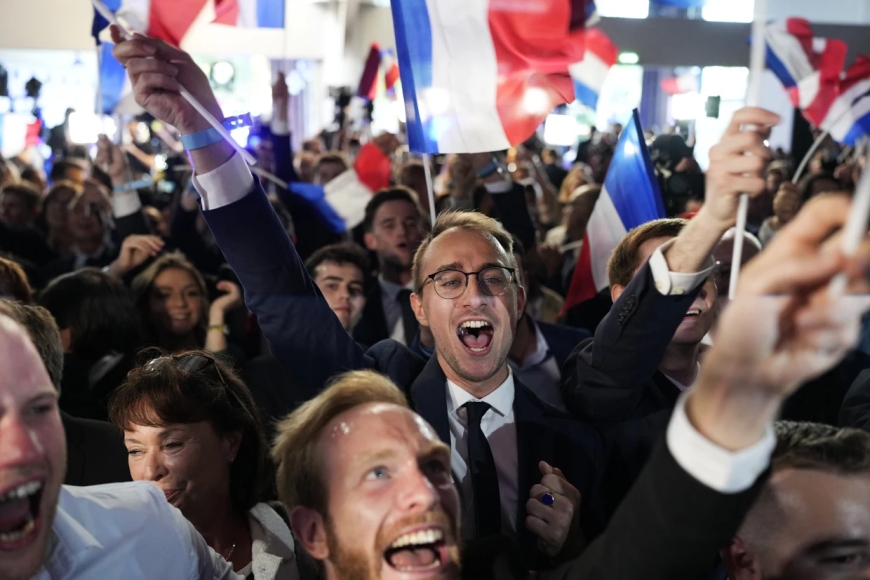Macron's Bold Move to Curb Far-Right Surge in Europe

On Monday, Macron announced a snap election, expressing confidence that the French people would "make the right choice." This unexpected decision follows a weekend of European Parliament elections in which the far-right National Rally made substantial gains.
Marine Le Pen’s National Rally secured double the votes of Macron’s centrist Renaissance party, prompting Macron to call for the snap legislative election at the end of the month. This drastic step aims to halt the far-right's momentum, though it also risks granting them more power domestically, potentially undermining Macron's presidency and casting a shadow over the upcoming Paris Olympics.
“I have heard your message, your concerns, and I will not leave them unanswered,” Macron stated in a Sunday night address. “France needs a clear majority to act in serenity and harmony.”
Mujtaba Rahman, a managing director at the Eurasia Group, described Macron’s move as a considerable gamble, risking his legacy and the future of France. Although it’s more challenging for Le Pen to win a domestic election compared to a European one, the risk remains significant.
Across Europe, the elections indicated a rightward shift in the political landscape. These elections, while not for national governments, are critical as they elect lawmakers for the 720-seat European Parliament, influencing policy and political tone across the continent.
Despite fears of a far-right sweep, the center-right emerged victorious in Germany and maintained its dominance in Europe’s legislature, with the center-left also holding its ground. Ursula von der Leyen, president of the E.U. Commission, lauded the center-right's stability.
In contrast, the National Rally's triumph in France was striking, projected to secure around 32% of the vote compared to Macron’s Renaissance party's 15%. Jordan Bardella, the 28-year-old leading the National Rally's European efforts, stated, “Tonight, our compatriots have expressed a desire for change.”
Macron’s announcement of a two-round legislative election on June 30 and July 7 introduces further complexity to an already busy summer for France, coinciding closely with the Paris Olympics. International Olympic Committee President Thomas Bach assured there would be no issues, though Paris Mayor Anne Hidalgo expressed concerns about the timing.
Macron, who has three years left in his term after defeating Le Pen in 2022, risks a contentious power-sharing scenario should the far-right gain legislative power. This could impede his efforts to position himself as Europe’s de facto leader.
Macron’s strategy hinges on the belief that voters will reject Le Pen’s policies in a domestic context, thereby stalling the far-right's advance. However, the stakes are high, and as Rahman notes, “France is restless.”













































